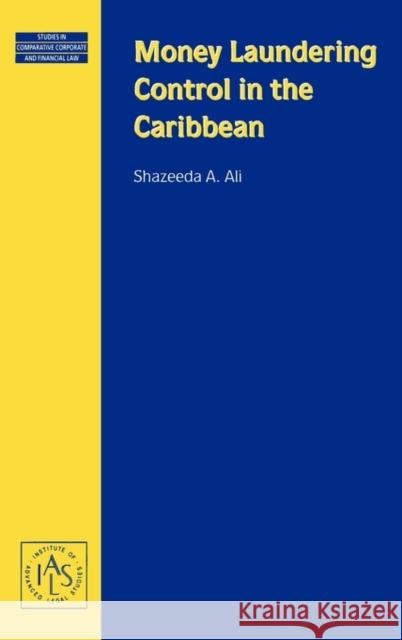Money Laundering Control in the Caribbean (Series: Studies in Commparative Corporate and Financial Law Volume 16) » książka
Money Laundering Control in the Caribbean (Series: Studies in Commparative Corporate and Financial Law Volume 16)
ISBN-13: 9789041199058 / Angielski / Twarda / 2003 / 310 str.
Money Laundering Control in the Caribbean (Series: Studies in Commparative Corporate and Financial Law Volume 16)
ISBN-13: 9789041199058 / Angielski / Twarda / 2003 / 310 str.
(netto: 1516,57 VAT: 5%)
Najniższa cena z 30 dni: 1548,86
ok. 16-18 dni roboczych.
Darmowa dostawa!
It has long been believed that the most effective way to immobilise organised criminal activity lies in blocking the channels that allow illegally-obtained assets to enter the economic mainstream. Yet even as international law enforcement cooperation in this vital endeavour becomes ever more focused, the bewildering domain of criminal money laundering techniques remains elusive. The "gross national product" of international crime still exceeds that of many nations. The special value of this new book is to be seen in its close conjunction of what we know of laundering channels and methods on the one hand and existing legal regimes (both preventive and reactive) on the other. Although major victories on the side of law and order are not numerous so far, the author clearly demonstrates that progress is being made in certain areas and that the overall thrust of international law and cooperation in the field is growing stronger. She goes on to identify a number of linkages between criminal necessities and potential legal measures that are likely to bear fruit. Among the central problems considered and elucidated are the following: the systemic corruption engendered by money laundering; the secrecy inherent in the offshore financial industry; the shortcomings of criminal penalties for money laundering; the tensions created by extraterritorial jurisdiction; the identification of responsible criminal parties; the conceptual complexities in the civil law; the limitations of international police and judicial assistance; and the often contradictory effects of U.S. foreign policy. The book's focus is on the Caribbean-and particularly on the Cayman Islands, the Bahamas, and Jamaica-to keep the discussion within manageable bounds. This specialisation permits a close comparison of the way local laws interact with international and extraterritorial measures designed to intercept illegal money "on the way to the laundry." It is the author's belief that the insights gained by this in-depth comparison will shed light on the paths to be followed by law enforcement agents and judicial tribunals as they pursue their goal of stemming the flow of laundered illegal money into the world's economies.











